In regard to the urgency of disability research in terms of the psychological aspects of life span development and contextual factors in multicultural settings, as well as measuring the experience of Gadjah Mada University through the Faculty of Psychology, especially in the field of developmental studies throughout the life span, CLSD would like to fill this gap by collaborating with national and international experts on disability studies through the Interdisciplinary Online Summer Course entitled “Developing context and partnerships to produce knowledge in research human development across a disability-inclusive life span in a multicultural setting: Indonesian and Global Perspectives (MILENIALS)”. The theme of this course is also in line with UGM’s ideology and efforts to become an inclusive campus for people with disabilities which has been started in 2017. This course, in particular, provides a model to strengthen the mainstreaming of disability discourse in the Tridharma of Higher Education activities which can become UGM’s scientific excellence in the International level.
The Faculty of Forestry UGM strives to develop quality and networks in the implementation of education, research, and community service programs in forest and environmental conservation. Efforts to preserve mountain forests have a very important role because mountains are natural water towers in the world because they are able to provide fresh water for the needs of the wider community.
MMAT 2021 Summer Course Program
Southeast Asia is not a mere geographical space with a passive role in the international arena. Instead, the region has continued to be an active agent to engage in the international political discourse that covers the political, economic, social, and cultural dynamics, as well as, security issues. The image of Southeast Asia as an actor that is capable of becoming an agent, is reflected in the political decision taken by the leaders of Southeast Asian countries to define and to present themselves as one single community, which is the ASEAN Community. Ironically, the level of interest and the number of studies conducted by academics regarding Southeast Asia is less developed inside the region.
Smart City, Village, and Region (SCVR) Summer Course 2021 is an online short-term intensive course organized by the Faculty of Geography UGM. This summer course is designed for students who are willing to learn and work hard to improve their understanding, knowledge, and skill in smart cities, villages, and regions. Various participants are encouraged to join this course in order to enrich the discussion from undergraduate, postgraduate, Ph.D. students, professionals, and also institutions. Not only participants will learn the necessary knowledge in class but also they will do virtual excursions and field trips to do a direct observation of smart city, village, and region implementation in a particular area.
The purpose of this third Summer Course Program is to provide facilities for students in the field of history and social science to critically understand the condition of society amid a pandemic and handling it from various perspectives, be it economic, social, political, and cultural in various world regions, be it Asia, Europe, Australia, and Africa. The discussion will focus on power exploration resilience and awakening of global society, local and global engagement in regime development scientific control and its interconnection with imperialism, racism, and the norms of the non-scientific order other, the resilience and responsiveness of various societies in subverting these controls and effects empowerment from transnational forces; they represent the essence of the human biological perspective in understanding the rise of the modern world.
ASEAN Studies Center, Universitas Gadjah Mada proudly presents the 3rd ASEAN Youth Initiative Empowerment Program (AYIEP). This year’s AYIEP will be held with the theme of “Fostering Youth’s Initiative in ASEAN Development” which carries the spirit of ASEAN unity and integrity. It offers a productive activity that focuses on the community, especially the youth, to affirm ASEAN Identity. ASEAN youth have a high level of mobility, especially with the rapid advancement of technology. They are also the main actors in some production chains and business within the region. Furthermore, they play a significant role as potential leaders who will steer ASEAN regional policies in the future. Hence, it is undeniable for the ASEAN Youth to collectively form a central agency with strong influence in giving meaning to this activity.
One Health Collaborating Center Universitas Gadjah Mada proudly present “Komodo and Wildlife One Health Online Summer Course 2021”. The summer course is implemented to improve knowledge and skills in zoonotic disease identification especially from komodo dragon using One Health approach. Lectures will be given by international speakers from Indonesia, Vietnam, Philippines, Thailand, Japan, Taiwan, Australia, Belgium, France, Germany, and USA. We also provide practical session with group discussion, group work & presentation, and virtual visit to Komodo National Park!
The successful implementation of the 2020 Virtual Summer Course 2020 on Interprofessional Health Care – Health 4.0: Management and Technologies for Improving Primary Healthcare in Developing Countries encourage the Faculty of Medicine, Public Health and Nursing (FK-KMK) together with the Faculty of Dentistry and the Faculty of Pharmacy, Gadjah Mada University submitted a proposal in 2021 as continuity of learning and training programs for interprofessional education in the community with current relevant topics. Traditional communities have a dependence on various plants as a source of food, medicine, and traditional ceremonies. Local knowledge about existing plants is developed based on experiences that have been tested over centuries and adapted to local cultural and environmental conditions. This knowledge is known as ‘local wisdom’. Local wisdom is more than just a concept. This local wisdom is a powerful tool that has the potential to be used throughout Asia and the world in the world of Health, both in health care and health maintenance. The sufficient scientific evidence and better presentation are needed to implement local wisdom amid modernization.FK-KMK together with Faculty of Dentistry and Faculty of Pharmacy created a Virtual Summer Course on Interprofessional Health Care – Complementary Healthcare and Functional Food to support innovation in integrating superior programs across disciplines of UGM in providing advocacy and service implementation integrated health.
The summer course on the nexus between traditional ecological knowledge and modern agricultural practices in the Faculty of Agriculture UGM is of great significance due to several reasons. First, local wisdom is one priority of the ‘Three Principles of Higher Education, comprises of education, research, and community service’) of Universitas Gadjah Mada. The topic is in line with the Faculty of Agriculture’s research and community service roadmap: “smart eco-bioproduction”.
ASEAN is now undergoing the process of developing an ASEAN Economic Community (AEC) in 2015 which will become a single market and production base. In the process of realizing this AEC, increasing the competitiveness of food, agriculture, and livestock products in the international market, and empowering farmers through the promotion of agricultural cooperatives have become regional priorities. New and cross-sectoral issues such as food security, climate change mitigation, and adaptation for the agriculture and livestock sector, are also part of the priorities. Through harmonization of quality and standards, food safety assurance, and standardization of trade certification, ASEAN agricultural products are expected to be ready to compete in the global market by offering safe, healthy, and quality food. ASEAN has developed Good Agricultural Practices (GAP), Good Animal Husbandry Practices (GAHP), Good Hygiene Practices (GHP), Good Manufacturing Practices (GMP), and Hazard Analysis Critical Control points (HACCP), standards for production, harvest, and post handling. – agricultural product harvests, limits on maximum pesticide residues, criteria for the accreditation of livestock and livestock products businesses, GMP guidelines for shrimp, and a “code of conduct” for responsible fisheries, to be used as a reference in developing national priorities and a means to support industrial development.



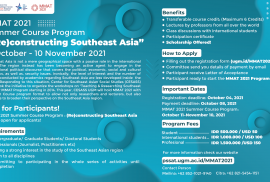
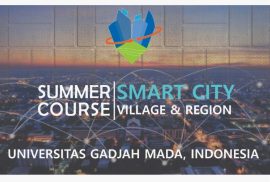
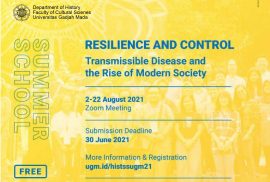
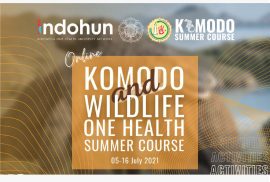
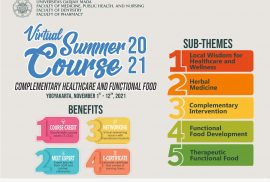
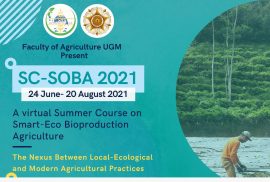
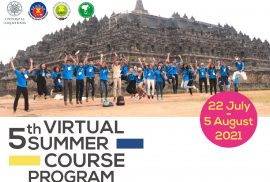
Recent Comments